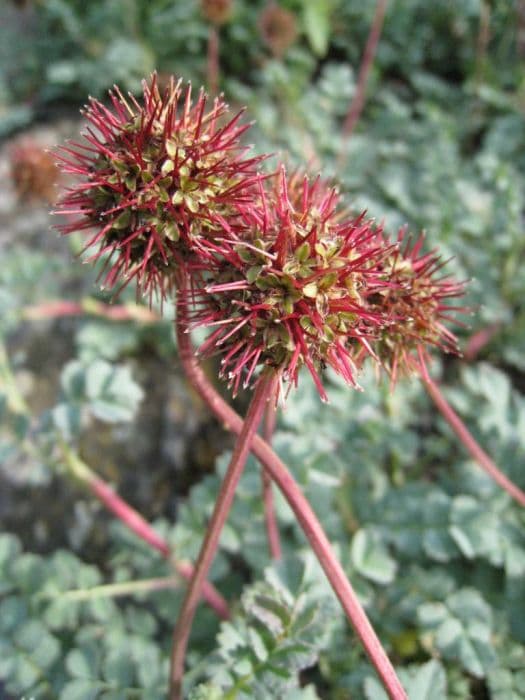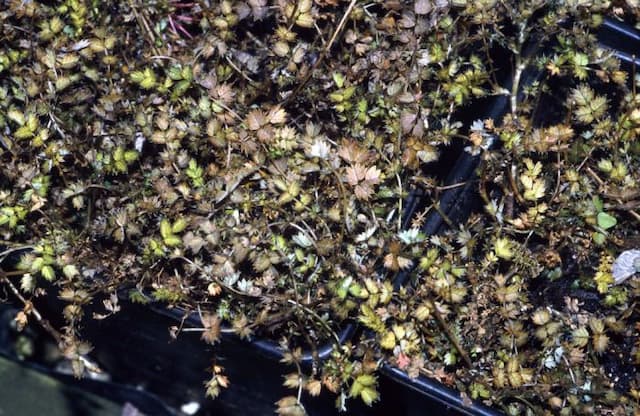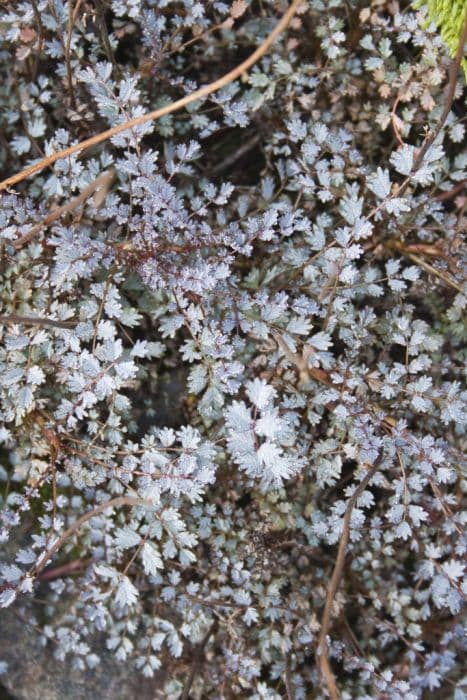Silver Anniversary Rose Rosa Silver Anniversary = 'Poulari' (HT)
![rose [Silver Anniversary]](/_next/image?url=https%3A%2F%2Fplants-admin.emdemapps.com%2Fimages%2Fplants%2F%2Fimages%2F604b5f72b0b66.png&w=3840&q=75)
ABOUT
The Rosa Silver Anniversary, also known as 'Poulari', is a type of hybrid tea rose celebrated for its striking blooms and elegant presence. This plant produces exquisite flowers characterized by their classic shape and creamy-white color. The petals are usually large and full, often exuding a rich, sweet fragrance that is highly coveted by gardeners and rose enthusiasts. The foliage of the Rosa Silver Anniversary is typically a deep, glossy green, providing a lush background against which the flowers stand out prominently. This contributes to the plant's overall visual appeal, allowing the roses to be the stars of the show. The juxtaposition of the dark green leaves with the bright white petals offers a sophisticated and timeless appearance. This rose is known for its strong stems which support the large blooms and maintain an upright posture, giving this plant a poised and sturdy look. Even though the size dimensions are not discussed, the proportion of the flowers to the plant gives it a balanced and graceful appearance. Due to its stunning flowers, the Rosa Silver Anniversary is often a favorite for use in bouquets and floral arrangements. It brings a touch of elegance and sophistication to gardens and landscapes, making it a cherished addition to plant collections.
About this plant
 Names
NamesFamily
Rosaceae.
Synonyms
Silver Anniversary Rose, Pearl Anniversary Rose.
Common names
Rosa 'Poulari' (HT)
 Toxicity
ToxicityTo humans
The Rosa Silver Anniversary, commonly referred to as Hybrid Tea Rose, is not considered poisonous to humans. There is generally little to no toxicity associated with this plant, and it is often grown for ornamental purposes. However, ingesting large quantities of roses, including the Hybrid Tea Rose, may cause mild stomach upset due to the plant material's indigestibility. It is unlikely to cause severe poisoning in humans.
To pets
The Hybrid Tea Rose, like other rose species, is not considered highly toxic to pets. If a pet, such as a dog or cat, were to ingest part of a Hybrid Tea Rose plant, they might experience mild gastrointestinal irritation, including symptoms such as vomiting or diarrhea, mostly due to the physical nature of the plant matter. However, the plant is not known to cause severe poisoning in pets. Nonetheless, it is always wise to prevent pets from eating plants to avoid any potential health issues.
 Characteristics
CharacteristicsLife cycle
Perennials
Foliage type
Deciduous
Color of leaves
Green
Flower color
White
Height
3 feet (0.91 meters)
Spread
2 feet (0.61 meters)
Plant type
Shrub
Hardiness zones
6
Native area
Cultivar
Benefits
 General Benefits
General Benefits- Attractive Blooms: The Rosa 'Poulari', commonly known as Hybrid Tea Rose, produces large, fragrant, pure white flowers that enhance garden aesthetics.
- Long Blooming Period: This rose variety offers a prolonged blooming season, providing beauty in the garden for an extended time.
- Landscape Versatility: Suitable for borders, beds, and as cut flowers, the hybrid tea rose is versatile in landscaping use.
- Celebratory Symbolism: Being an anniversary rose, it's often used to mark special occasions and can serve as a meaningful gift.
- Habitat Support: It provides habitat and food for pollinators such as bees and butterflies, promoting biodiversity.
- Hardiness: This rose is known for being hardy and resilient in a variety of garden conditions once established.
 Medical Properties
Medical PropertiesThis plant is not used for medical purposes.
 Air-purifying Qualities
Air-purifying QualitiesThis plant is not specifically known for air purifying qualities.
 Other Uses
Other Uses- Rose hip tea alternative: The hips of the Rosa Silver Anniversary can be used as a floral, fruity tea alternative when dried and steeped in hot water, offering a unique flavor different from traditional rose hip tea.
- Culinary garnish: Petals from the Rose Silver Anniversary can be used to add an elegant touch to desserts or salads, introducing a mild floral flavor and aesthetic appeal to dishes.
- Natural dye: The petals can be boiled to create a natural dye for fabric, offering hues from soft pink to light shades depending on the concentration.
- Floral baths: Adding petals from the Rose Silver Anniversary to a warm bath can provide a luxurious and aromatic experience, acting as a natural bath soak.
- Scented bookmarks: Drying the petals and placing them inside a book can leave a faint, pleasant rose fragrance, making for a scented bookmark.
- Rose water: Petals of the Rose Silver Anniversary can be distilled to produce rose water, which can be used in homemade cosmetics or as a refreshing facial mist.
- Floral crafts: The roses can be used in potpourri mixes, or the petals can be incorporated into homemade paper for an artistic touch.
- Candle making: Petals can be embedded in wax to create decorative and fragrant candles that have a gentle rose scent when burned.
- Wedding confetti: Dried and crushed petals can serve as a biodegradable and romantic alternative to traditional wedding confetti.
- Artisanal rose sugar: Mixing fine sugar with crushed Rose Silver Anniversary petals can create a unique, floral-infused sugar for culinary use in cookies or as a topping for sweets.
Interesting Facts
 Feng Shui
Feng ShuiThe rose is often used in Feng Shui to promote love, heal relationships, and attract positive energy. Rosa Silver Anniversary can be placed in the southwest area of the garden or home to enhance the love and marriage sector. Its white flowers can also be used to introduce metal element colors, bringing clarity, precision, and freshness to a space.
 Zodiac Sign Compitability
Zodiac Sign CompitabilityThe rose is not used in astrology practice.
 Plant Symbolism
Plant Symbolism- Pure Love: The white roses of the 'Silver Anniversary' variety symbolize pure and everlasting love, making them a popular gift for significant anniversaries.
- Innocence: White roses are often associated with innocence and purity, reminiscent of new beginnings or youthful innocence.
- Elegance: The sophisticated appearance of this rose is emblematic of elegance and grace.
- Reverence: A white rose like the 'Silver Anniversary' can convey a sense of reverence and honor, showing deep respect to the recipient.
- Remembrance: Often used in memorials, white roses signify remembrance and mourning, indicating that someone's memory will always be cherished.
 Water
WaterHybrid Tea Roses, the category to which the 'Silver Anniversary' rose belongs, should be watered deeply but infrequently to encourage root development. Generally, providing about 1 to 2 gallons of water per plant once a week during the growing season is sufficient. However, in hot and dry weather, they may require additional water, possibly twice a week. To avoid disease, water directly at the base of the plant early in the day to allow foliage to dry. During the winter, reduce watering, but do not allow the roses to completely dry out.
 Light
LightHybrid Tea Roses such as the 'Silver Anniversary' rose should be planted in a location that receives at least six hours of direct sunlight daily. They thrive in full sun, which encourages vigorous growth and abundant flowering. Avoid planting in areas that are shaded for a significant portion of the day as this can lead to poor blooming and increases the susceptibility to disease.
 Temperature
TemperatureThe 'Silver Anniversary' rose is hardy and can generally withstand typical garden conditions in USDA hardiness zones 5 through 10. These roses tend to prefer temperatures between 65 and 75 degrees Fahrenheit but can survive fluctuations outside this range. They can handle temperatures as low as about 20 degrees Fahrenheit and as high as 90 degrees Fahrenheit, but extreme temperatures can negatively affect plant health and bloom production.
 Pruning
PruningPrune 'Silver Anniversary' roses to maintain plant health, shape the bush, and encourage vibrant blooms. Pruning should be done annually in early spring, just as new buds begin to swell. Remove any dead or diseased wood, thin out crowded areas to improve air circulation, and cut back remaining canes by about one-third to one-half their height. Pruning after the first wave of flowering can also encourage a second bloom in the same season.
 Cleaning
CleaningAs needed
 Soil
SoilThe best soil mix for the Hybrid Tea Rose 'Silver Anniversary' is well-draining loam with organic matter such as compost or decomposed manure. It prefers a pH between 6.0 and 6.5. Regular mulching helps maintain soil moisture and health.
 Repotting
RepottingHybrid Tea Roses like 'Silver Anniversary' grown in containers may need repotting every 2 to 3 years, preferably in the early spring before new growth begins.
 Humidity & Misting
Humidity & MistingHybrid Tea Roses such as 'Silver Anniversary' are adaptable to typical outdoor humidity levels and do not require specific humidity conditions indoors, making average room humidity suitable.
 Suitable locations
Suitable locationsIndoor
Ensure bright light, ample airflow, and periodic fertilization.
Outdoor
Full sun, shelter from extreme winds, mulch base, well-drained soil.
Hardiness zone
6-9 USDA
 Life cycle
Life cycleRosa 'Silver Anniversary', commonly known as the Silver Anniversary rose, starts its life cycle as a dormant bare-root or potted specimen. When planted in the spring, it enters a growth phase, developing roots, foliage, and stems. Flower buds form and bloom into characteristic large, fragrant white roses primarily from late spring to fall. After blooming, the plant sets hips (seed pods) if the flowers are not deadheaded. In winter, the rose becomes dormant, losing leaves in colder climates, and requires pruning to maintain shape and encourage vigorous growth in the next cycle. The process repeats annually, with the shrub potentially living and flowering for several decades with proper care.
 Propogation
PropogationPropogation time
Spring-Early Summer
The Rosa 'Silver Anniversary', commonly known as Hybrid Tea Rose, is best propagated by semi-hardwood cuttings. This technique is generally performed in late summer or early fall when the growth from the current season has begun to harden slightly. The most popular method involves taking a cutting of about 6 to 8 inches (15 to 20 centimeters) long from a healthy, disease-free plant. The bottom end of the cutting should be cut just below a leaf node, and the lower leaves should be removed. The cut end is often treated with a rooting hormone to encourage root development before it is placed into a well-draining growing medium, such as a mix of half peat and half perlite. The cutting should then be kept moist but not waterlogged and placed in a warm location with indirect light. After several weeks, the cutting should develop roots and can be transplanted into its own pot.









